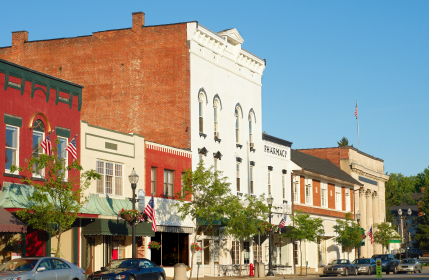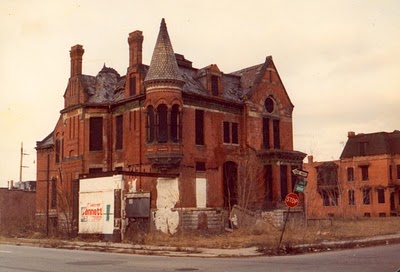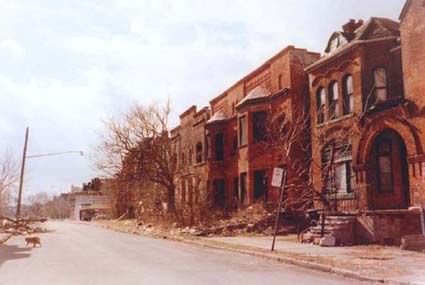 John Galway is an average White American. John is a mix of Europe; his ancestry includes German, Scandinavian, English, Italian, Scottish, and of course, with a last name like Galway, Irish too. He grew up in small-town America as one of four siblings. He joined the army at 18, served for a number of years, and still flies the stars and stripes from his front porch. He then came back and got a college degree in engineering, as well as a job designing industrial machinery for a large manufacturing company. He lives in the small town where he grew up with his wife, Maggie, and where they raised their son and daughter, Ryan and Amy, who are now both in college. John attends a local church regularly, and when the elections roll around he votes for the fiscally conservative, pro-life, pro-gun, conservative candidates. Life has been good to John, at least until recently.
John Galway is an average White American. John is a mix of Europe; his ancestry includes German, Scandinavian, English, Italian, Scottish, and of course, with a last name like Galway, Irish too. He grew up in small-town America as one of four siblings. He joined the army at 18, served for a number of years, and still flies the stars and stripes from his front porch. He then came back and got a college degree in engineering, as well as a job designing industrial machinery for a large manufacturing company. He lives in the small town where he grew up with his wife, Maggie, and where they raised their son and daughter, Ryan and Amy, who are now both in college. John attends a local church regularly, and when the elections roll around he votes for the fiscally conservative, pro-life, pro-gun, conservative candidates. Life has been good to John, at least until recently.
 It all started back a number of years ago when the mayor of John’s town started a campaign to bring racial minorities to town. Some of the town’s businesses wanted cheaper labor and the mayor did not want to lose his political contributions. Phrases involving “compassion,” “equality,” “diversity,” “tolerance,” and “inclusive” were used in the campaign. Since the few minorities John had met in the military and at university had seemed decent enough, John did not complain. Soon, however, things began to change in John’s town.
It all started back a number of years ago when the mayor of John’s town started a campaign to bring racial minorities to town. Some of the town’s businesses wanted cheaper labor and the mayor did not want to lose his political contributions. Phrases involving “compassion,” “equality,” “diversity,” “tolerance,” and “inclusive” were used in the campaign. Since the few minorities John had met in the military and at university had seemed decent enough, John did not complain. Soon, however, things began to change in John’s town.
 Crime rates and drug use increased exponentially; unheard of crimes like murder and rape became all too commonplace. The local schools went downhill as they had to deal with a massive increase in behavioral problems and were forced to dumb down the material to allow the minority students to keep up. Taxes went up to support the increased cost of law enforcement and welfare handouts to support the new arrivals. What used to be working class neighborhoods quickly became slums, and sub-prime loans were given out like candy to allow minorities into middle class neighborhoods. Mom-and-Pop stores went out of business, unable to compete with the superstores who boomed with the increase of cheap labor – superstores in which English was a secondary language and whose shoppers looked more like a gathering at the United Nations rather than the population of an American town. An increasing number of John’s friends started moving away, citing “crime” and “poor schools.”
Crime rates and drug use increased exponentially; unheard of crimes like murder and rape became all too commonplace. The local schools went downhill as they had to deal with a massive increase in behavioral problems and were forced to dumb down the material to allow the minority students to keep up. Taxes went up to support the increased cost of law enforcement and welfare handouts to support the new arrivals. What used to be working class neighborhoods quickly became slums, and sub-prime loans were given out like candy to allow minorities into middle class neighborhoods. Mom-and-Pop stores went out of business, unable to compete with the superstores who boomed with the increase of cheap labor – superstores in which English was a secondary language and whose shoppers looked more like a gathering at the United Nations rather than the population of an American town. An increasing number of John’s friends started moving away, citing “crime” and “poor schools.”
 This is the backdrop where we find John one Friday morning on his way to work. He is still furious from last night’s neighborhood association meeting. He had been asked to take down his U.S. flag because some of the foreign-born arrivals in his neighborhood found it offensive and exclusivistic. John had adamantly refused. “America is about respect and tolerance, and we find that flag offensive,” proclaimed one of John’s new Mexican neighbors. In the end, the neighborhood association leadership had simply voted to make it against the rules to fly any flag from a house. Although outraged, he had taken his flag down that morning.
This is the backdrop where we find John one Friday morning on his way to work. He is still furious from last night’s neighborhood association meeting. He had been asked to take down his U.S. flag because some of the foreign-born arrivals in his neighborhood found it offensive and exclusivistic. John had adamantly refused. “America is about respect and tolerance, and we find that flag offensive,” proclaimed one of John’s new Mexican neighbors. In the end, the neighborhood association leadership had simply voted to make it against the rules to fly any flag from a house. Although outraged, he had taken his flag down that morning.
To take his mind off this, John turned on the local talk show station. There had been national, state, and local elections that Tuesday and all the talk was about the results. The kind of fiscally conservative, pro-life, pro-gun, conservative candidates John supported, ones who used to consistently win in John’s area, just couldn’t seem to compete anymore against the pro-big government, pro-welfare, liberal candidates, now that the new arrivals were in town. More depressing was the fact that this trend seemed to be nationwide with the election of a pseudo-Muslim African as U.S. President. The talk show was predicting yet another round of welfare and tax increases after Tuesday’s election results.
When John arrived at work, he was greeted with the news that thirty of his coworkers were being let go at the beginning of the next month and being replaced with H-1B visa workers from India and China who would be working for half the current workers’ salary. John and several of his coworkers were unhappily discussing the situation when a manager overheard them and told them that if he heard any more of that kind of talk, then they would all be signed up for mandatory sensitivity training.
As John drove home that evening, he noticed even more “For Sale” signs around town than had been there last week. When the real estate market had crashed, all those minorities who had purchased homes above their means using sub-prime mortgages had defaulted. Not only had John lost the majority of his savings in the crash, but he had also lost most of the equity in his home. Even though he had not participated in the sub-prime loan deals, many of the new minorities in his neighborhood had, and this had destroyed much of his property value. While men with last names ending in -stein, -berg, -witz, and -baum had walked away with corporate bonuses in the millions, John was now going to have to work a lot longer than he had planned on before being able to retire.
He arrived home to find his wife, Maggie, distraught. Fridays were when her local women’s book club met. Before the new arrivals, they had read books by authors like Shakespeare, Poe, Hemingway, Homer, Kipling, and Twain. However, as the demographics of the town began to change, so too did the book club. The minority women wanted to read different kinds of books: books written by people like them, books about their issues, books that were about them. In a sense of fairness, none of the original women had objected; after all, everyone should have a say in what was read. But Maggie had noticed that these books had no appeal to her, that they were strange, that she often didn’t understand them, and that many times these books contained morally objectionable or offensive themes and passages. So that day when it came time to pick a new book, Maggie had suggested a book in the vein of those the club originally read. Immediately, the new arrivals objected with one of the black women proclaiming that she didn’t “want to read books by old dead white men,” and after Maggie had balked at reading yet another black liberation novel, she berated Maggie as a “racist” and “white supremacist.”
John turned on the TV to watch the news after dinner. The top story was about a group of people across the nation who had been protesting many of the new big-government initiatives. The reporters snickered as they referred to this group as “tea-baggers” and had a special “expert” from a sleazy leftist “hate watch” group on to discuss how the fact that since the majority of these people were white, this obviously made them closet Nazis.
The next day was a big game at the university John’s two children were attending, and he looked forward to the sporting event as a chance to get some much-needed relaxation. As John watched the game, he talked with his son, Ryan, about his plans after he graduated next semester. Ryan’s prospects did not look good. Those jobs which hadn’t been shipped to China, India, Mexico, Brazil, or another third-world country were mostly reserved for affirmative action hires or people with 10+ years of experience. Despite his high GPA and good major, he was afraid he was going to have to settle for a low-paying entry-level job he could have gotten without his degree, or even just an unpaid internship. Amy’s news was even worse. She said she was being sexually harassed by some of the black athletes living in the apartment building next to hers. When John asked if she had told the university officials about the situation, she said she had but they were refusing to do anything to jeopardize the careers of their star athletes; they had told her to stop being a troublemaker. John immediately made plans to move her to an off-campus, and much more expensive, apartment.
John felt like he needed a miracle to help him deal with all these situations. And since he was a strong Christian, he knew that God was the one to turn to for miracles. The next day, as he always was, he was in church hoping for the pastor to give him some moral guidance on how to address his and his town’s problems. Instead, John was forced to sit through a fiery sermon about how since everyone was human, everyone must be treated absolutely equally, and that anyone taking action against minorities was destined for the pit of hell. Further, since racism was the greatest of all sins, everyone should do their best to give minorities anything and everything they asked for; any opposition to immigration, welfare, intermarriage, or affirmative action was simply and downright unchristian. John noticed that the sermon, while very much lacking in any scriptural backing, sounded very much like the Marxist novels his wife had found objectionable in her book club.
John left church feeling deeply depressed. He felt as if he was losing his town, his country, his property, his children’s future, his culture, and even his faith. All the institutions which should have been there for him – his government, his church, his employers, his media – seemed not only to have abandoned him, but to be downright determined to see him destroyed. Was he alone in feeling this way?
The answer, of course, is NO. All the scenarios mentioned above have happened to me or someone I know personally, and they are trends that are actually taking place in America today. In fact, many actual events are worse and more outrageous than those described above. While John Galway is not a real person, there are millions of people like John in America today. White Americans feel they are losing their country, their culture, their money, their property, their retirement security, their homes, their rights and liberties, their towns, a better future for their children, and some things they cannot even put into words. And these fears are more than justified. This does not make them evil or “white supremacists”; this makes them good people, the kind of people who built America and made it great. Yet in their time of need, they find themselves under attack by the government, the media, the financial institutions, the corporations, and even the church.
Faith and Heritage is here to advocate for John Galway. John’s problems are real and his concerns are legitimate. At F&H we believe that the answers to these questions lie in the faith and traditions of our forefathers who built the civilization of which we enjoy the fruits – but which is being destroyed today. If you are a John Galway, if the above scenarios resonate with you, or if you simply want to avoid having those scenarios play out in your town, I invite you to find a home at F&H – to read, discuss, and share the articles, and to get involved with the community here, because you are not alone.
(Yes, the title of this article is a play off Atlas Shrugged’s “Who is John Galt?”)
| Tweet |
|
|
|




